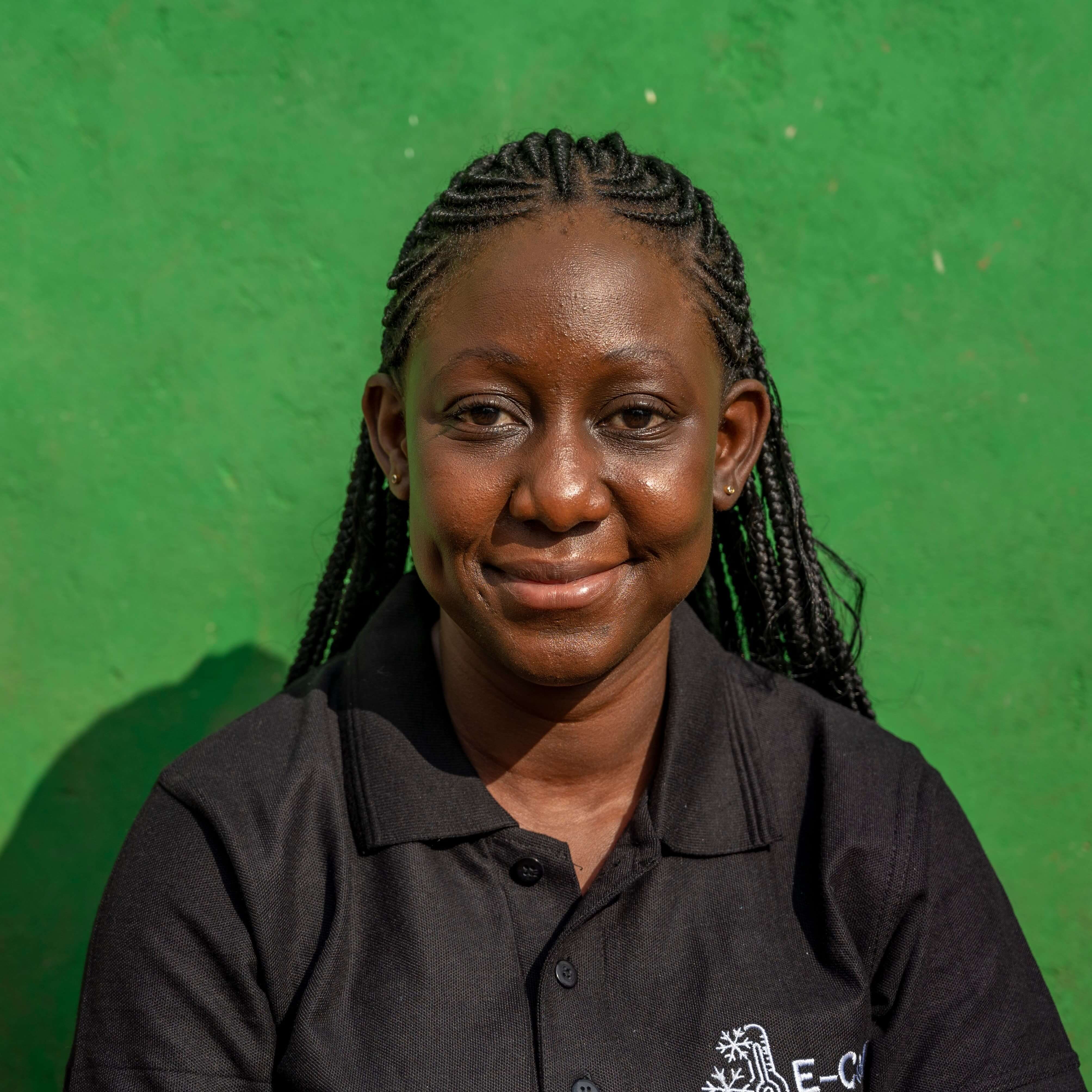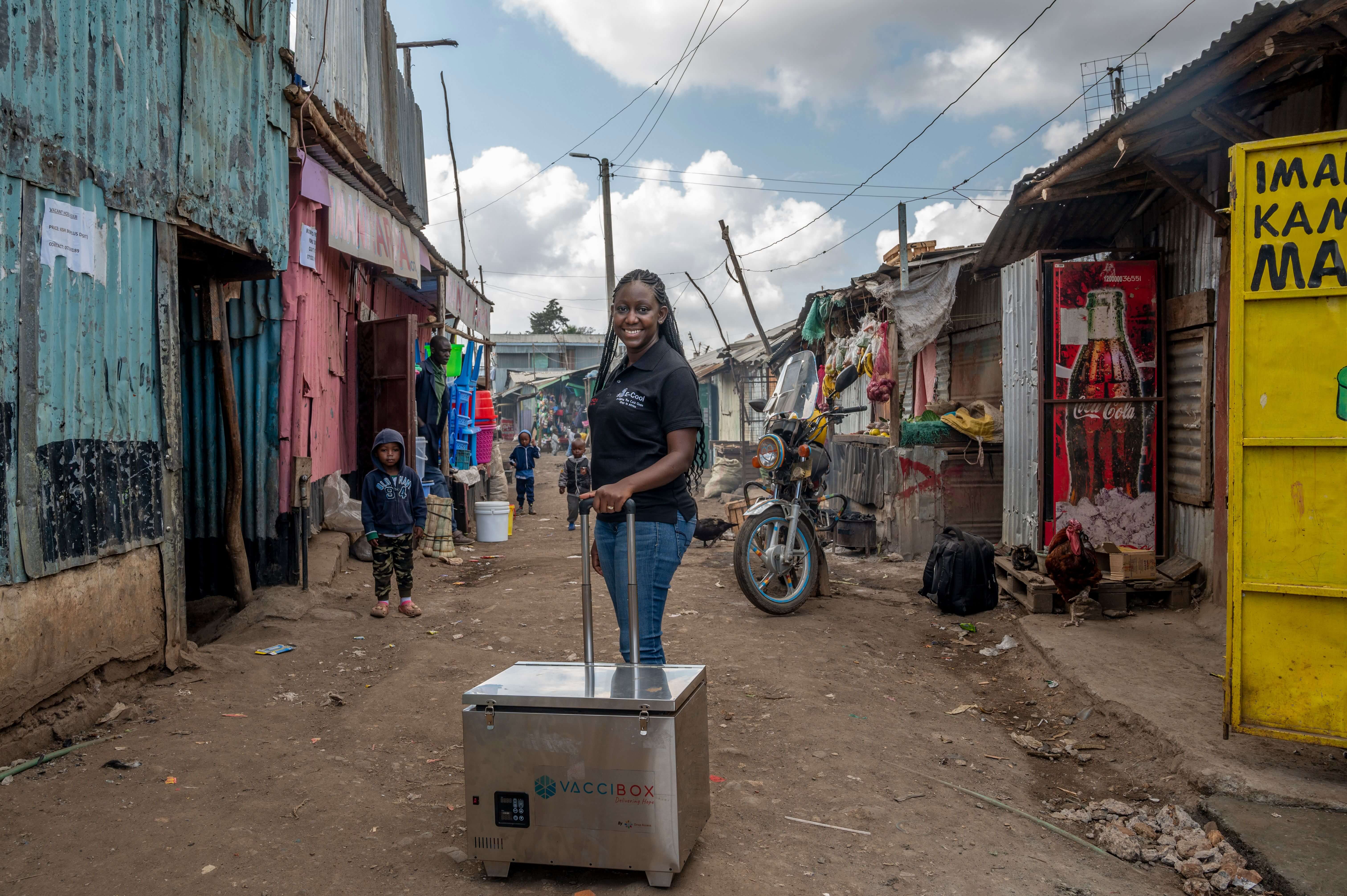Mechanical engineer Norah Magero and her team developed the VacciBox to help get essential vaccines to communities where cold-chain infrastructure is lacking, to ensure patients don’t miss the opportunity to be complete immunised.
Infrastructure and human resource challenges across Kenya continue to hamper vaccine distribution, with 3 in 10 children not adequately vaccinated. During the COVID-19 pandemic, the cold-chain challenges faced by healthcare practitioners and supply chains in distributing temperature-sensitive medicine was highlighted globally, and remains a problem for many types of vaccines.
The VacciBox can also be used to transport blood and tissue. Magero and her team hope that VacciBox will help alleviate these issues by ensuring healthcare workers have a reliable means of transporting temperature-sensitive medicine wherever they need to go.
The 40 litre VacciBox is portable and lightweight. It can be wheeled or mounted on a bicycle, motorbike or boat, and has a telescopic handle for easy mobility. A built-in thermostat and digital thermometer maintain temperatures required for cold-chain medicines, a battery supply as well as mains and solar panel connectivity, as well as a charge controller, ensure power stability. Magero and her team are currently running three pilot projects with rural healthcare facilities to evaluate the VacciBox’s features and efficacy.
To further ensure reliability, the VacciBox can be monitored and troubleshooting can be done remotely before deciding to send out a technician or recall the unit in case of failure. An application helps monitor distribution, stock and unit condition, so that healthcare networks can plan vaccination drives effectively.
Magero plans to improve the VacciBox app to connect to a network of healthcare facilities so that vaccine, medicine and blood bank stock can be viewed across a region, making it easier to allocate and distribute life-saving products as needed.

“VacciBox was designed with our local challenges in mind. It’s versatile, reliable and localised. We’re ensuring that it works the way healthcare workers need it to work for the conditions they face each day, so that they can save lives without worrying about technology.”
Norah Magero


